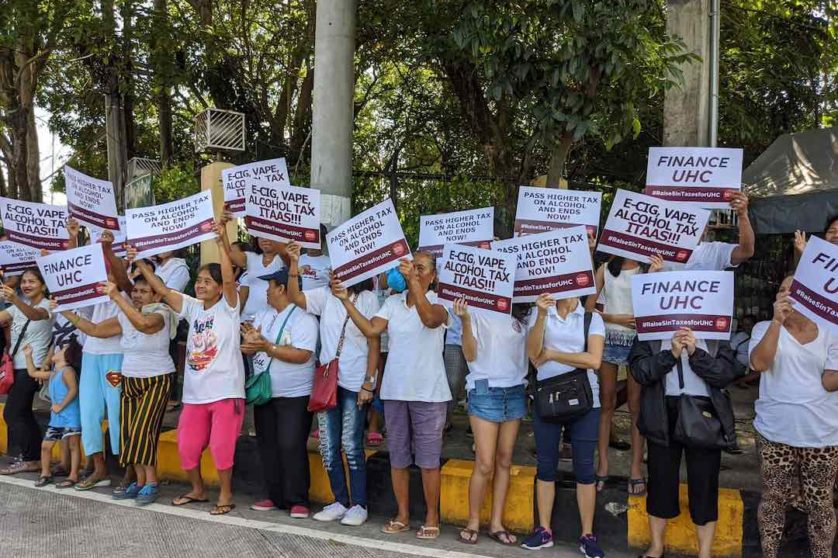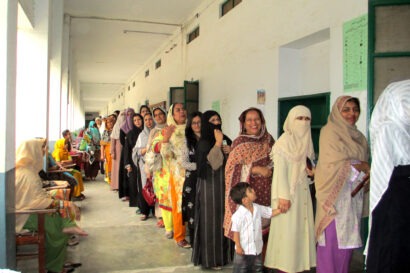This piece is co-published with the International Budget Partnership.
Since its onset, governments the world over have responded to the Covid-19 pandemic by ramping up spending and providing tax relief to ailing families and businesses, even in the face of dwindling revenues. This has inevitably led to widened fiscal deficits and ballooning public debts. For a crisis of such large and unknown proportions, these extreme measures are more than justified.
What is not clear, however, is what will happen once the health emergency subsides, and governments are left with the task of returning public finances to a more stable and sustainable path. Will they decide to continue providing basic income support to people living in poverty and expanding access to health services, or will the response turn to strict austerity measures? Can the crisis open up space for a more equitable and inclusive approach to fiscal policy, recognising and addressing the inequalities that the pandemic has made ever more starkly apparent?
The answers depend in part on how governments approach tax policy. Raising additional revenues will be a necessity for governments as soon as the worst of the crisis is over. Proposals for how to ensure new revenues are collected in a more equitable and efficient way are already being put forward. Mick Moore and Wilson Prichard of the ICTD laid out a particularly clear and comprehensive agenda pointing to tax reforms that reflect a new fiscal contract, prevent a further worsening of inequality and help to address other societal problems like climate change. In their view, the crisis presents an opportunity to promote a more fundamental shift in the ways in which governments collect revenues.
The real challenge lies in understanding how best to overcome the political opposition that tends to accompany large-scale reforms for more progressive and equitable tax systems. In many countries, political and economic elites are likely to resist new or increased taxes on wealth, while corporations and high net worth individuals are likely to use various tactics—including political pressure—to keep their tax bills low. In the immediate aftermath of the crisis, the targeting of wealthy individuals and businesses may face particular political resistance as these groups point to their recent economic losses as justification for their inability or unwillingness to pay. At the same time, there is a risk that increased pressure for revenue will simply lead to greater revenue extraction from those that are less politically influential and more vulnerable, including individuals and businesses in the informal sector.
If we are serious about promoting more equitable and progressive taxation as part of post-Covid recovery strategies, we need to start thinking now about how to build the coalitions that can put pressure on governments to make better choices and withstand inevitable opposition.
How can civil society-led coalitions support politically challenging tax reforms?
What might these coalitions look like? And what role can citizens and civil society organisations (CSOs) play in them? An ongoing project at the International Budget Partnership’s new Tax Equity Initiative is looking at successful civil society engagement in tax reform across the world. While these case studies will only be finalised later in the year, IBP recently convened researchers and CSOs to discuss preliminary findings and emerging cross-country themes and lessons.
Evidence from the eight cases suggests at least four ways in which civil society-led coalitions can help shift popular perceptions of taxation and move the political needle on reforms:
- Successful coalitions often go beyond the usual suspects to include a broad range of actors who support specific reforms. For example, parts of the business community supported tax reforms in Vietnam, Guatemala, and Uganda. In the latter, civic actors and mobile money traders aligned against new taxes on mobile money transfers that would mostly hurt people living in poverty. In the United States, labour unions were critical to the success or partial success of so-called “millionaire taxes” (generally, income tax surcharges on high incomes) at the state level. CSOs therefore need to understand the interests of various groups, how interests may align in support of progressive tax reforms, and how messaging may be crafted to bring these groups into an effective coalition.
- Promoting a narrative linking taxes to the services they are meant to fund can be effective in building public support for tax reforms. In the Philippines, broad support for so-called sin taxes—that is, taxes on products on tobacco and alcohol—was possible as the reform was framed as a health issue, not just a fiscal one, with revenues committed to financing public health care expenditures. Likewise, in the case of state-level “millionaire taxes” in the United States, framing tax increases around the education and infrastructure services new revenues would fund was critical to ensuring popular support for the reforms. In the wake of Covid-19, committing new tax revenues to health expenditures, food security, or other recovery priorities may be a particularly effective strategy to gain initial widespread support.
- Appeals to equity and fairness can also help ensure support for progressive reforms. Civic actors need to invest in learning more about how people think about fairness through surveys and focus groups where they can. This greater understanding of popular perceptions and expectations can help shape and strengthen public pressure campaigns. For example, when civil society organisations forced the tax administration to release details of the beneficiaries of tax amnesties in Mexico, data showed that well-known celebrities and large corporations were receiving generous tax relief without any clear need. This led to a public outcry and created political pressure on the government to stop these amnesties, which it eventually did. In France, the juxtaposition of cutting taxes on wealthy, urban elites while raising them on the rural working classes fuelled perceptions of unfairness that drove initial support for the Yellow Vests movement.
- Coalitions need to be ready to take advantage of political opportunities for change when they arise. When a corruption scandal in the tax administration agency rocked Guatemala and led to the dismissal and arrest of both the President and the Vice-President, a regional think tank, the Instituto Centroamericano de Estudios Fiscales (ICEFI), immediately called for an overhaul of tax administration and managed to get support from both business associations and peasant groups. ICEFI offered a roadmap which eventually led to a new law being passed to strengthen transparency and accountability in the Superintendency of Tax Administration (Superintendencia de Administración Tributaria). In Kenya, a progressive new constitution gave Tax Justice Network Africa (TJNA), a regional African coalition, an opportunity to challenge a double taxation agreement that the government had signed with Mauritius, eventually getting the courts to nullify it. Although the government then negotiated another similar treaty, TJNA successfully established a precedent that civic actors have legal standing to challenge tax policy decisions, creating the potential for more scrutiny around future deals across Africa.
It is clear that civil society has a critical role to play in both advocating for more equitable tax systems and supporting greater taxpayer engagement to support that advocacy. To get to post-crisis tax systems that are more equitable and that embody a shift in the terms of the fiscal social contract, the time to build broad coalitions in support of progressive tax reforms is now. Otherwise, a great opportunity to revolutionise how governments collect revenues and use them to reduce inequalities might be missed.
The ICTD is currently seeking to support research on civil society and taxation. Please see our call for proposals here.



